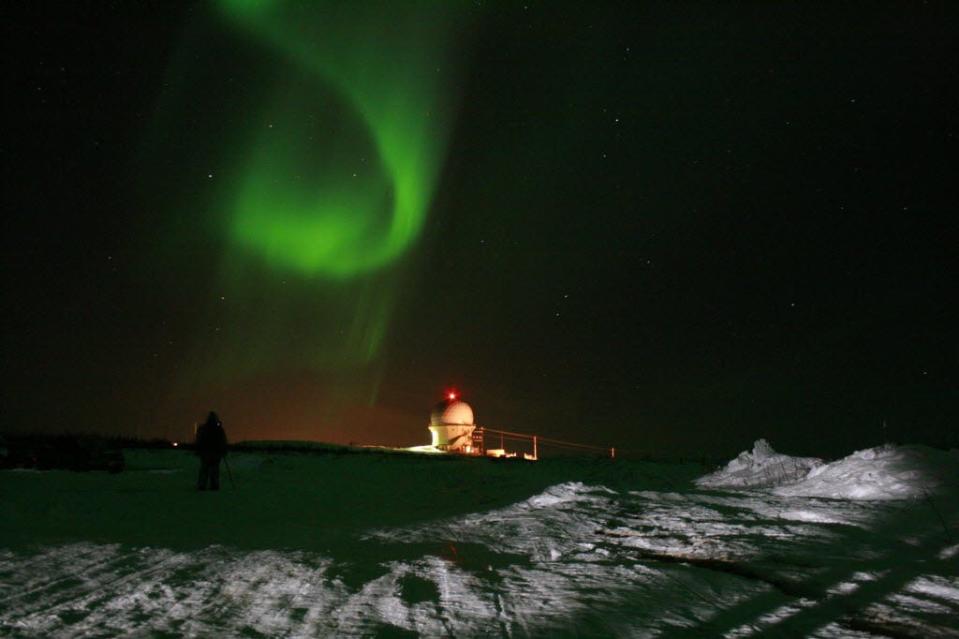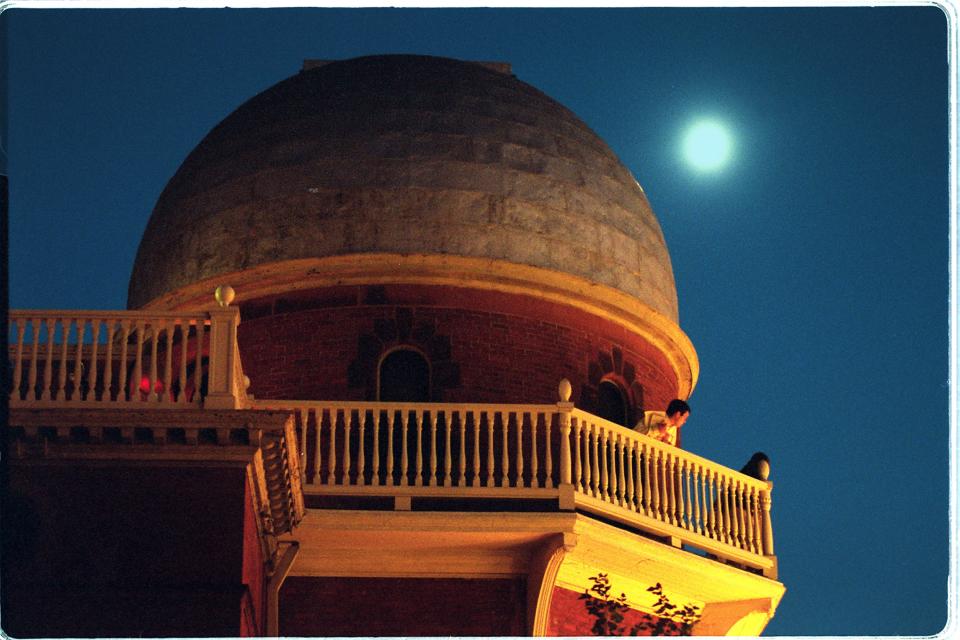There was hope for seeing the Northern Lights in RI Thursday. What forecasters are saying.
Night sky watchers will be watching the skies on Thursday night hoping to catch a glimpse of the northern lights, also known as the aurora borealis, which could appear in at least six U.S. states on Thursday.
Where the lights will be visible is a bit up in the air. Originally, the University of Alaska Fairbanks Geophysical Institute forecasted that auroral activity would be visible in 17 states, including parts of New England. But on Tuesday, they amended the forecast to six states: Alaska, Montana, South Dakota, Wisconsin, Michigan and Oregon.

Weather permitting, between 10 p.m. and 2 a.m. will be the best time to see the lights.
The forecast is subject to change.
Are the Northern Lights visible in Rhode Island?

Between the amended auroral activity forecast and the cloudy weather predicted on Thursday, it's unlikely that Rhode Islanders will have a view of the northern lights this time.
But, it's not unheard of for the northern lights to be visible in Southern New England, so even if this isn't the time, there's hope.
"I personally have seen them five times, the best in 2003," said Francine Jackson, staff astronomer at Brown University's Ladd Observatory. "The best way to see them here has to be a place with a good northern horizon, with as little light pollution as possible."
If you're trying to see the lights, she recommended finding a north-facing beach.
Want to admire the cosmos? Here's a beginner's guide to stargazing in Rhode Island
"All we can say is to go outside, face north, and hopefully you and others may be surprised by the sky," Jackson said. "However, even if you aren't able to see any auroras, please keep looking up and enjoying the sky you can see."
What are the Northern Lights?
The natural phenomenon of the northern lights is usually caused by solar winds coming from the sun and Earth's magnetic field, according to the National Oceanic and Atmospheric Administration's Space Weather Prediction Center.
Northern lights update: Six US states could see aurora borealis this week, latest forecast says
"Aurora is the name given to the glow or light produced when electrons from space flow down Earth’s magnetic field and collide with atoms and molecules of the upper atmosphere in a ring or oval centered on the magnetic pole of Earth," the website says. "The collisions produce light much like how electrons flowing through gas in a neon light collide with neon and other gases to produce different colored light bulbs."
This article originally appeared on The Providence Journal: Northern Lights in RI? Forecast unlikely for July 13 showing.

